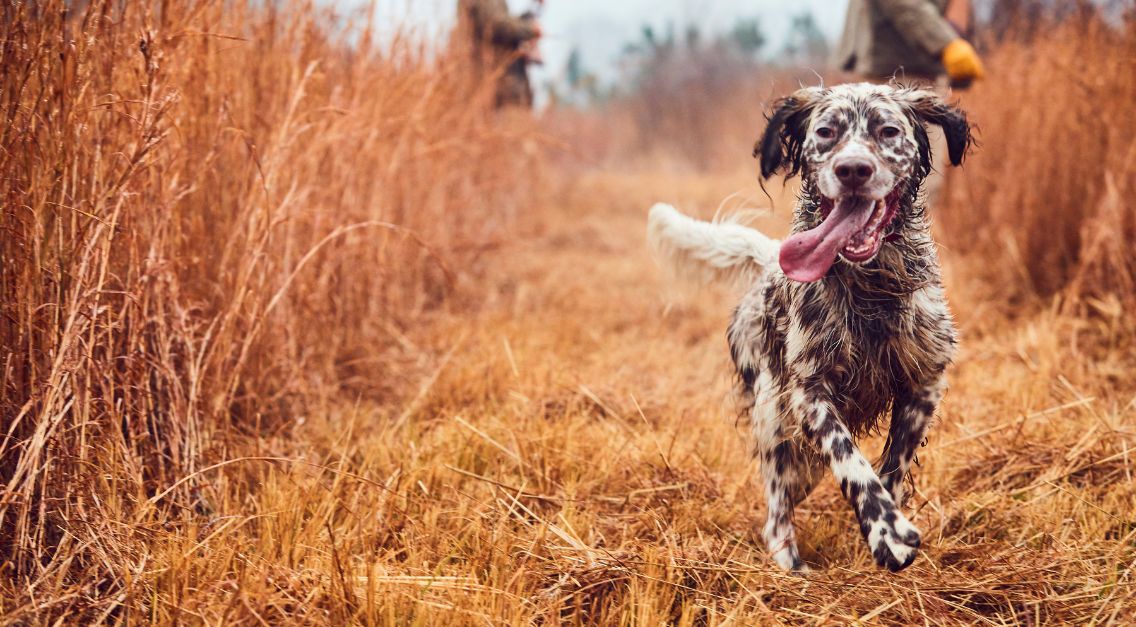Friends Old, New, and Soon to Be,
I’m a lifelong Southerner forced by circumstance to live in other places at times in my life. But no matter where the nation sent me, in my head and heart I’ve always been where the landscape and the voices are a little softer at the edges. I am rapturously in love with the mélange of landscape, food, accents, and people that make the South a cultural gumbo. That passion for place, rather than excluding people who have their own, makes me appreciate theirs and be thankful for the chance to see through their eyes. That gives me a love of writers who appreciate a sense of place, wherever it might be. Tom Reed appreciates, and writes extensively about, place.
Tom is a lifelong Westerner, a third-generation Coloradan. He and his wife own and operate a horse ranch and organic farm outside Pony, Montana where his two children are following in his footsteps as hunters and anglers. He is the author of several books and a columnist for Wyoming Wildlife and TROUT magazines and, whether skinny streams in Arizona, forests in Montana’s Northern Rockies, or on the wide expanse of our nation’s western prairies, Tom has likely pursued game there and written about it.
Fifteen years ago Tom decided, as we did at the Field Journal, that if he was going to read writing that told the kind of stories he sought, specifically about upland bird hunting, he would have to write them. He sought out some like-minded writers/hunters and the Mouthful of Feathers blog was born. Fortunately, for readers who love the kind of work we are so proud of at the Tom Beckbe Field Journal, his latest book, Mouthful of Feathers, Upland in America is built on a foundation of writing about loving the places, people, and dogs who make up upland hunting culture. I encourage you to acquire a copy for your game vest. But first, I encourage you to read my interview with Tom and let him tell you why.
Yours,
Russell Worth Parker
Editor-in-Chief, Tom Beckbe Field Journal

Russell Worth Parker: I read and enjoyed “Mouthful of Feathers, Upland in America” and I’ve spent some time following a dog around looking for birds so I think I get some of it, but tell me why you felt compelled to write and edit this book.
Tom Reed: Years ago, when blogs were really taking off, a buddy of mine, Bruce Smithhammer, and I thought we’d start a blog about the “art of” upland hunting or “art in” upland hunting. By this, I mean that we, as creative writers, felt boxed in by the mediums of the day when it came to our writing. We wanted a place where jokes were still okay, where irreverence was recognized as just a form of communication, and where creativity was encouraged. What we read out there in the world of creative hunting literature was thin soup at best and pretty much non-existent. So, we started Mouthful of Feathers, and out of that spun an e-book that was short-lived, and out of that spun this latest effort. This book was far more ambitious than just publishing short blog pieces that were unpublishable in mainstream media and an e-book. We wanted a place where talent could be highlighted and enjoyed and placed on the bookshelf for generations to enjoy rather than being lost at electronic sea never to be seen again.
RWP: I stole a line from Field of Dreams and said of both writers and readers of The Tom Beckbe Field Journal, “If we build it, they will come.” In the introduction to your book you write, “The idea was simple: we would write what we wanted and put it up for any and all to read, as long as it was good, as long as it had a connection, even a thin one, to the uplands.” Especially in the digital age, I think there is a hunger for meaningful, evocative, beautiful writing that respects the reader’s time. I’d appreciate your thoughts on the state of American sporting and outdoor writing.
TR: I think there’s both a hunger for good writing and a dearth of it. Click on the average blog out there and it’s usually just a shorter version of an outdoor story that’s basically this:
“The alarm clock went off, we ate breakfast, we went afield, it rained and/or snowed, we shot or didn’t shoot some birds, we went to the truck and drank whisky and smoked cigars, then we went to the lodge and drank more whisky and gloried in our stories of the day.”
Maybe that’s unkind. But the “Me and Joe” story was anathema to outdoor writing when I started this game forty years ago and yet it’s still, sadly, alive and well. Too well. Tell me something different. Rather, show me something. Write about an emotion or a person or a bird dog, but don’t write trite, tired bullshit. This collection is intended to be deeper, literary, lasting. There’s a place for this stuff, we think, and what the Tom Beckbe Field Journal and our book are both trying to do is be those places.
RWP: This book has a Western sensibility. I’ve lived overseas and out west, but I am pulled to Southeastern pine savannas or live oaks, marsh mud, and brackish creeks. I love mountains so old they look like hills compared to what you have out west. What do you love about where you live?
TR: In two words, public land. I can drive into the middle of the night and throw my sleeping bag down on the ground and no one is going to wake me up and take me to jail for trespassing.
RWP: That is indeed a Western magic. Upland Hunters form a distinct culture. Why does culture matter? More specifically, why does upland culture matter?
TR: Culture is the glue that binds our tribe. We find commonality and camaraderie in culture and we often covey up with those who share our culture. It’s important to be here, but it’s also important to revel in differences and to at least try to experience and understand a culture that is not our own. This book’s authors have the commonality of the uplands as their culture. I know that there are many differences in other arenas among these authors, but this is where we have connected in the moment.
There is indeed a culture in upland hunting. I think there may be two cultures, one the shooters and one the seekers. This book is written by the latter. By that I mean those who hunt wild birds in tough places. They step into a place like the mountains of North Carolina with a lunch and a pocket full of shells and they emerge hours later, scratched, bloodied, perhaps bruised, tick-covered, and worn out. Their bird dog will have similar afflictions. Maybe there will be one timberdoodle in the bird vest, enough to make an appetizer for two mildly hungry people. But that seeker will be sated. They will have walked into woods thick enough to be “Blair Witch Project” scary, seen their dog perform dazzling feats of raw instinct, stepped over the ruins of what once was a hardscrabble farm of the 1700s now reclaimed by the hardwoods, and then re-emerged to their vehicle and their phone and all of their texts and emails. For a moment, a day maybe, they will have been feral. That’s enough.
The former kind, the shooters, are products of our nation’s woeful treatment of upland bird habitat. They shoot planted birds that were eating out of feeders twenty-four hours earlier. Nothing wrong with this, but it’s just a different culture driven by a desire to shoot rather than a drive to adventure. They get something that feeds their soul out of this kind of experience, but it’s not the same as mine, nor as the authors in Mouthful of Feathers, Upland in America. They’ll likely have a bag full of birds, or at least a vest pocket full of empties. That’s okay, it’s just not for me.
RWP: I’ve also found that something about upland hunters compels them to write. What do you think the connection is?
TR: There is poetry in watching a bird dog do its thing. That’s what I think it is. The audience leaving a performance of The Nutcracker will linger to converse about the wonders they have just witnessed. This is not too dissimilar. Tell me that watching a top-notch English setter sweep across the tallgrass prairie isn’t something akin to ballet and I’ll question your ability to connect to your own soul. If you get it, you’ll want to testify about what you have seen.
RWP: The famous actor Michael Keaton wrote the forward for Mouthful of Feathers. How did that happen?
TR: He’s a part-time Montanan, a bird hunter, and the friend of one of our authors. We were honored that he stepped up to help us and lend his name to the work.
RWP: I have used this book as a means of finding writers for the Tom Beckbe Field Journal and have so far published Edgar Castillo and Mike Neiduski with several pieces of work to come from the very widely published Dave Zoby. How did you select writers for this book?
TR: Some we had worked with for years or known about, like Eddie Nickens and Christine Peterson, and some we discovered from their writing on the internet. We wanted several things out of this search and they included writing ability, diverse voices, and the essence of the “seeker” mentioned above.
RWP: You can hunt only one species, which one and why?
TR: Chukar partridge. I love chukar for several reasons. First, they are true public land birds, found in the meanest country of the West. Second, they make me laugh and cuss in the same breath. Third, they are covey birds. Lastly, they challenge me physically and mentally and require me to stay relatively fit and honed. In the book, I relayed an old mountaineer’s saying which is there are old mountaineers and bold mountaineers but there are no old, bold mountaineers. “There are very few old chukar hunters, bold or otherwise,” I wrote in my essay “The Old Man’s Gun.” It is indeed a young person’s game and the crew I hunt with are all in their late 30s and 40s. I’m in my early 60s and I want to be chukar hunting with them when they are my age now. That’s an achievable goal, I think, because I don’t linger long at tailgates with whisky and cigars.
RWP: You are an angler as well. Describe the perfect day of fishing.
TR: I’ll give you two. I was fortunate enough to work with Kirk Deeter at TROUT magazine for a good deal of my career and also honored to fish with him. One spring many years ago, we stood at the head of a run on the Big Horn in Montana taking turns fishing with another friend of ours, Jon Christiansen. The fish were up on blue wing olives and we just traded on shit-talking, encouragement, and dirty jokes. That’s my kind of fishing.
The other example comes from the San Juan River in Utah where my family and I recently had a multi-day raft trip. At the tail end of a rapid we’d just run, my 6-year-old son, Otto, cut his own willow switch, tied on a hook and bobber, baited the hook with a slice of pepperoni, and proceeded to catch five catfish in a row without moving an inch while his mom, dad, and their friends drank beer on the beach and thrilled in his victories. The point is, whether it is hunting or fishing, I’ve arrived at the mark in my life when I get as much soul-filling out of watching as I do partaking.
RWP: What are you working on now?
TR: It’s too soon for me to start talking about it but I will say that it’s a project unlike anything I’ve ever tackled and I’m perhaps more excited about it than anything I’ve ever done. It will have some horses in it, but it’s not a horse book like Give Me Mountains For My Horses, but this work will have enough equines to move the human spirit.
RWP: Where can folks get a copy of Mouthful of Feathers?
TR: This is a book that we essentially self-published through Cornmill Press out of Bellevue, Washington, but it was marketed and printed through Amazon. Love us some independent bookstores, but Amazon is where the book is sold until it starts showing up in used bookstores.









